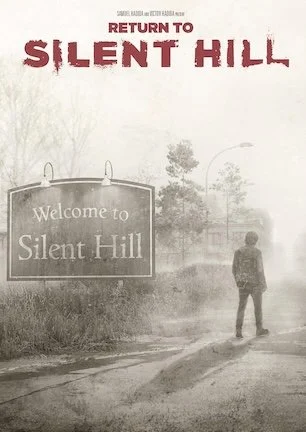Studio: Uncork’d Entertainment
Director: Norbert Keil
Writer: Norbert Keil, Richard Stanley
Producer: Felix von Poser
Stars: Rebecca Forsythe, Lucie Aron, Barbara Crampton, Sean Knopp, Adnan Maral, Laura Cuenca Serrano
Review Score:
Summary:
An amnesiac woman whose flesh unnaturally ages and painfully decays discovers she can replace her skin with someone else’s.
Review:
Kira is uncertain which affliction is more worrying. That she can’t remember any event in her life prior to one week ago or that her flesh is rapidly falling away from her body.
A promising date with new beau Jonas ends in spending the night at his place. Kira wakes the next morning with Jonas nowhere in sight, though she leaves with no less of a smile over the prospect of ongoing romance.
Inexplicably, Kira’s walk home takes her back to where she started. Confused, Kira reenters Jonas’ building and discovers his loft is decorated as though she herself lives there alone. Jonas’ number is disconnected. Calling the ‘Home’ contact on her phone rings the landline in the apartment. And a neighbor claims Kira has lived there as long as she can recall, and she has no idea who Jonas is at all.
Meanwhile, the skin on Kira’s hand begins flaking away. As time goes on, the condition creeps up Kira’s arm, necrotizing her flesh to the point where she can peel it away in bloody chunks.
Curiosities don’t cease there. When broken glass cuts her new friend Sophia, Kira is compelled to place the severed sliver on her own rotting hand. Kira’s body absorbs the foreign skin, refreshing her decaying tissue in the process. At least one of Kira’s conditions has a cure. Too bad it involves flaying someone else’s flesh in order to repair her own.
Comparisons to David Cronenberg are virtually automatic in any discussion of a “body horror” film. What “Replace” successfully captures about Cronenberg that similar terror transformation movies do not is the sinister sexiness that can come from flesh-related fears. It isn’t in the nudity or same-sex relationship anchoring the drama. It’s in the way “Replace” positions horror using alluring atmosphere that is suggestive, seductive, and disconcertingly dreamlike in quality.
In addition to Cronenberg, Dario Argento is acknowledged in the Special Thanks credits. Indeed, the giallo maestro’s influence of colorful creepiness stamps the cinematography with muted moodiness. Director Norbert Keil achieves the effect he wants for Kira and her environment to have empathetic appeal through his images’ artistry as opposed to straight shock value.
Applying a careful artist’s eye leads into how the movie sidesteps reliance on gross-out gore as a main means of inducing unease. There is certainly some of that in the audibly painful peeling of sliced skin or in watching flesh crumble as though it were flash frozen first. But Keil knows his script, co-written by Richard Stanley, is capable of creating suspense through story. The multiple mysteries moving “Replace” make it engaging beyond being a purely visceral “body horror” thriller.
Rebecca Forsythe repeatedly reminds of Deborah Ann Woll in the way she simultaneously embodies sultry fierceness with innocent vulnerability. These dual tones are essential for composing Kira as a personality who can elicit sympathy as an unfortunate victim, and enmity as a potential murderer driven by vanity.
The dreaminess factor alluded to earlier is hurt by a 100-minute runtime. The film’s smolder suits it for most of the movie, though slowness sets in by the third act, where it starts taking a greater toll on attention spans. Several unneeded scenes (an early visit to a doctor and a later search for others in similar circumstances are two) yield little value other than delaying the main narrative. Even when a final exposition explosion arrives to answer remaining questions, there is still another 20 minutes to go until end credits. “Replace” isn’t quite overlong, but it does deal in more material than required.
A second slip comes when the “Orphan Black” setup with a “Neon Demon” aesthetic is abruptly exchanged for a slasher-heavy finale. “Replace” goes nine-tenths of its distance with cerebral chills dominating physical thrills, then decides on a redirection that isn’t necessarily in keeping with the previously established tone. Toss in heavy-handed villainy for a particular character during the last third and things teeter a touch toward cartoonish carnage.
“Replace” pulls back from that brink with strong suspense and stronger style. Hiccups in the final tying of threads notwithstanding, the lady leads make for a charismatic trio stewarding the story through swings of horror, drama, and mystery. A subdued stride might be seen as a stumble by some, though it takes more than an inconsistent pace to hinder heavy intrigue.
Review Score: 70






While the 110-minute runtime could use a trim to maintain more energy, “Redux Redux” is an easy recommend for anyone who enjoys low-key sci-fi.